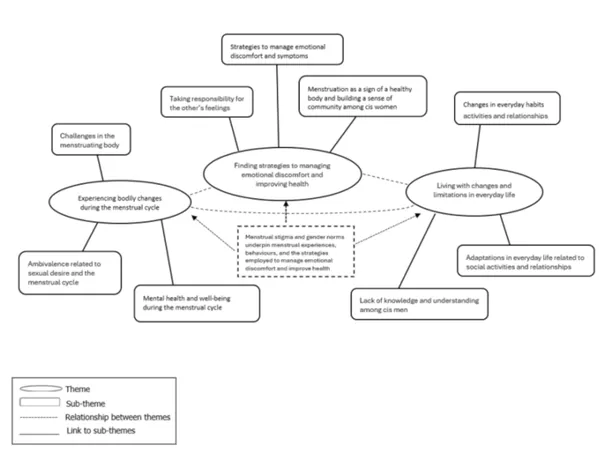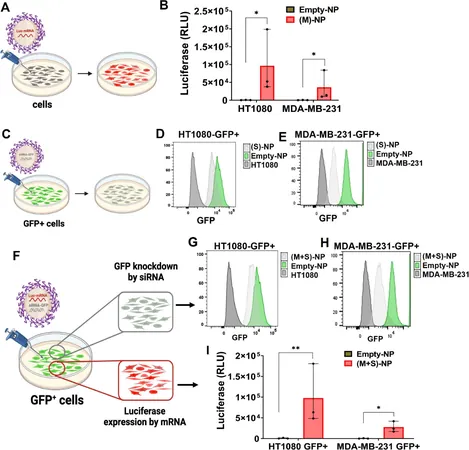
Breaking the Silence: Understanding Menstrual Health Among Young People and Overcoming Stigma
2024-12-17
Author: Sarah
Menstrual health is more than just a biological process; it is a crucial public health issue that intersects with gender equality and the Sustainable Development Goals. Defined as a state of complete physical, mental, and social well-being, menstrual health goes beyond the mere absence of pain or disease. Achieving menstrual health requires accurate information, affordable products, supportive facilities, timely medical care, and a stigma-free environment where individuals can participate in society without restriction.
The current study sheds light on the experiences of menstruating young people in Sweden—individuals who could be girls, women, transgender men, or non-binary individuals. Despite affecting nearly half of the global population for decades, menstrual health has historically been overlooked. This neglect is especially evident in high-income countries, where awareness around menstrual disorders such as dysmenorrhea, endometriosis, and premenstrual syndrome (PMS) has been slow to develop. Dysmenorrhea alone affects an estimated 70-90% of young women globally.
Research highlights the significant societal impacts of menstrual disorders, with studies showing that physical symptoms can severely impact quality of life and limit educational and professional opportunities for those who menstruate. As such, understanding the barriers to menstrual health becomes essential for developing inclusive public health policies.
In Sweden, recent studies have revealed that a staggering 93% of adolescent schoolgirls report experiencing menstrual symptoms, with a significant portion reporting severe discomfort. Despite such prevalence, qualitative research that dives into the lived experiences of young menstruators—both positive and negative—remains scarce. This study aims to uncover these experiences, focusing not just on the symptoms themselves but on the broader implications for health and well-being.
The Social Framework of Menstruation
Menstruation cannot be fully understood without considering the cultural norms and gender stigma that surround it. These societal scripts dictate how menstruators perceive their bodies and their cycles, often leading to internalized stigma. In many cultures, menstrual blood is still viewed as "dirty," fostering an environment where menstruating individuals feel compelled to hide their experiences from others. This stigma exists across various groups, with research showing that a significant number of menstruators encounter feelings of shame and discomfort.
The findings from this qualitative study present a first-hand exploration of how these experiences manifest. By interviewing 16 young adults aged 18-28, researchers uncovered the myriad ways menstrual health affects not only the physical but also the emotional and social dimensions of their lives.
Navigating the Challenges of Menstruation
Participants shared challenges in managing their menstrual cycle, including a range of physical symptoms like pain and heavy bleeding. Some described menstrual pain as debilitating, leading to missed school or workdays, while others expressed feelings of anxiety and depression linked to their cycle. Interestingly, some participants also found empowerment and a sense of community in sharing their experiences with friends or partners.
Emotional well-being was closely tied to the physical symptoms experienced during menstruation, with many reporting a dip in mood and increased irritability around their cycle. For transgender men and non-binary individuals, menstruation served as a source of gender dysphoria, making the experience even more complex and often distressing.
Seeking Support & Overcoming Stigma
The study highlighted a lack of understanding around menstrual health, especially among cisgender men, who often downplay or dismiss menstruation-related concerns. This gap in knowledge contributes to menstrual stigma and prevents menstruators from seeking help when necessary.
Participants expressed a desire to see gender-neutral language incorporated into menstrual health discussions, reflecting the importance of inclusive practices in breaking down barriers. Education is key, as normalized discussions around menstruation can foster a supportive environment for all, regardless of gender.
Finding Solutions: Managing Symptoms and Embracing Empowerment
While the challenges surrounding menstrual health are multifaceted, so too are the coping strategies employed by participants. From physical exercises to self-care rituals, many individuals developed their own methods for managing the discomfort and emotional strain that menstruation often brings.
Additionally, the study emphasized the need for improved access to healthcare services that are responsive to those with menstrual-related issues. Many had positive experiences with healthcare providers who understood their needs, showcasing the impact that informed and empathetic care can have on menstrual health outcomes.
In conclusion, this study not only elucidates the myriad experiences associated with menstruation among young people in Sweden but also calls for a broader societal shift. By destigmatizing menstruation, promoting awareness, and improving healthcare responses to menstrual health, we can pave the way for a more inclusive and equitable society—one where everyone can navigate their periods with dignity and support. Let's continue the conversation and break the silence around this critical aspect of health that affects millions worldwide.





 Brasil (PT)
Brasil (PT)
 Canada (EN)
Canada (EN)
 Chile (ES)
Chile (ES)
 España (ES)
España (ES)
 France (FR)
France (FR)
 Hong Kong (EN)
Hong Kong (EN)
 Italia (IT)
Italia (IT)
 日本 (JA)
日本 (JA)
 Magyarország (HU)
Magyarország (HU)
 Norge (NO)
Norge (NO)
 Polska (PL)
Polska (PL)
 Schweiz (DE)
Schweiz (DE)
 Singapore (EN)
Singapore (EN)
 Sverige (SV)
Sverige (SV)
 Suomi (FI)
Suomi (FI)
 Türkiye (TR)
Türkiye (TR)